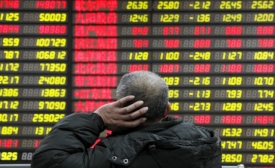regional diplomacy
And so it came, after years of protracted negotiations, extended deadlines and a diplomatic dance of unprecedented proportions – a deal that could signal a new era for Iran’s relations with the world. (...) Beyond the technical details of the agreement lies a triumph of diplomacy and the potential, if not for a realignment of US interests in the Middle East, then certainly a significant adjustment which has concerned its traditional allies in the region.
China's new Asia Infrastructure Investment Bank (AIIB) is a very big deal for Asia's economic future, but the way its establishment has played out makes it an even bigger deal for Asia's changing political and strategic order. And Canberra's announcement last weekend that Australia will join the AIIB despite the objections of the United States may come to be seen as marking a historic shift in Australian foreign policy.
In this interview, His Excellency Ahn Ho-Young, Ambassador of the Republic of Korea to the U.S., outlines South Korea’s concerns about and hopes for the Asia-Pacific region, including the nuclear issue on the Korean Peninsula.
Next month, Indonesia will be hosting the commemoration of the 60th anniversary of the 1955 Asia-Africa Conference. According to Indonesian President Joko Widodo, the commemoration aspires to remind the world that Indonesia played a significant role in the anti-colonial struggle. Amidst complex contemporary global politics, it will be a challenge for Jokowi to convince the world that this Asia-Africa gathering is necessary and relevant.

The African continent is changing. Strong population and economic growth, natural and agricultural resources, and an emerging middle class have resulted in growth which attracts international investors.
Prime Minister Narendra Modi is planning to visit Sri Lanka's ancient capital Anuradhapura during his trip to the island nation next month, a move aimed at pushing India's soft power and projecting the country's Buddhist links in the region.
A more purposeful military diplomacy, Xi suggested, is a vital necessity to buttress China’s emergence as a great power in Asia and the world.







